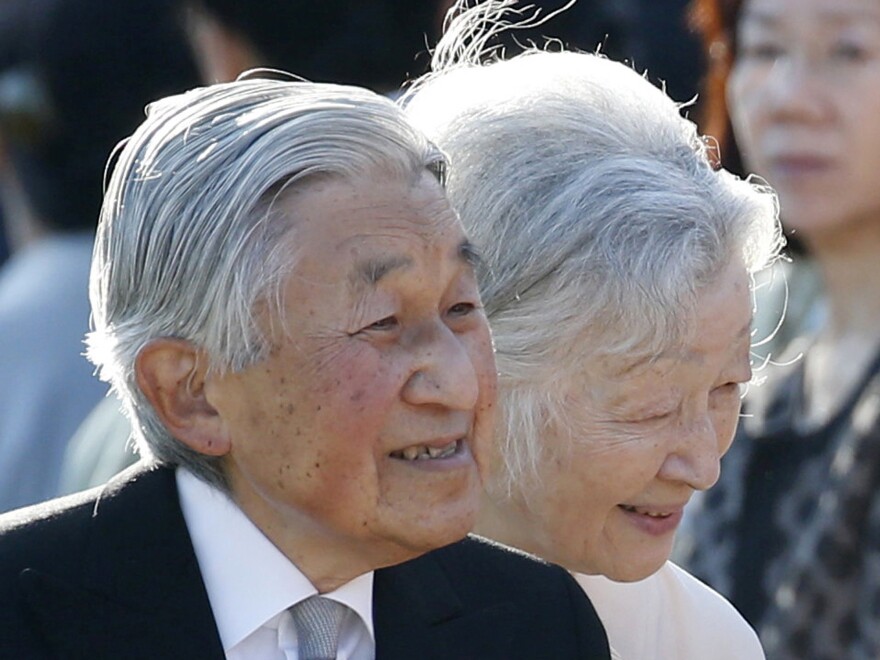
Japan's 83-year-old Emperor Akihito will abdicate on April 30, 2019, capping a three-decade reign on the Chrysanthemum Throne, the Imperial Household Council said Friday – setting a date to the desire first hinted at by the monarch more than a year ago.
The abdication, the first in some 200 years in Japan, will usher in a new era to replace the current Heisei era that began with Akihito's ascendency.
Akihito's eldest son, Crown Prince Naruhito, 57, will succeed his father, who cited his age and health in an August 2016 video message alluding to his desire to step down.
Japanese law doesn't provide for abdication; emperors, considered spiritually immortal, are expected to serve until death. So in June, Japan's parliament passed what amounts to an exception for Akihito.
In accordance with the new law, Prime Minister Shinzo Abe called a meeting to hear opinions from the Imperial Council – which includes the leaders of both houses of parliament, the chief justice of the Supreme Court and members of the imperial household and imperial family, according to The Japan Times. The panel arrived at the date for abdication on Friday.
Not since 1817 has an emperor stepped down, when Kokaku, the founder of the current dynastic imperial branch, did so.
Akihito ascended to the throne upon the death in January 1989 of his father, Emperor Hirohito, who had reigned over Japan during Japan's rise to global power status and through its disastrous involvement in World War II.
Parting from the aloof nature of imperial families of the past, Akihito enjoys a popularity in Japan that stems from gestures that have demonstrated his empathy for the common people. For example, when Japan was hit in 2011 by a massive tsunami that killed thousands and left tens of thousands homeless, "the emperor abandoned formality to comfort the Japanese people," NPR's Elise Hu reports.
Copyright 2021 NPR. To see more, visit https://www.npr.org. 9(MDEwMTk5OTQ0MDEzNDkxMDYyMDQ2MjdiMw004))












